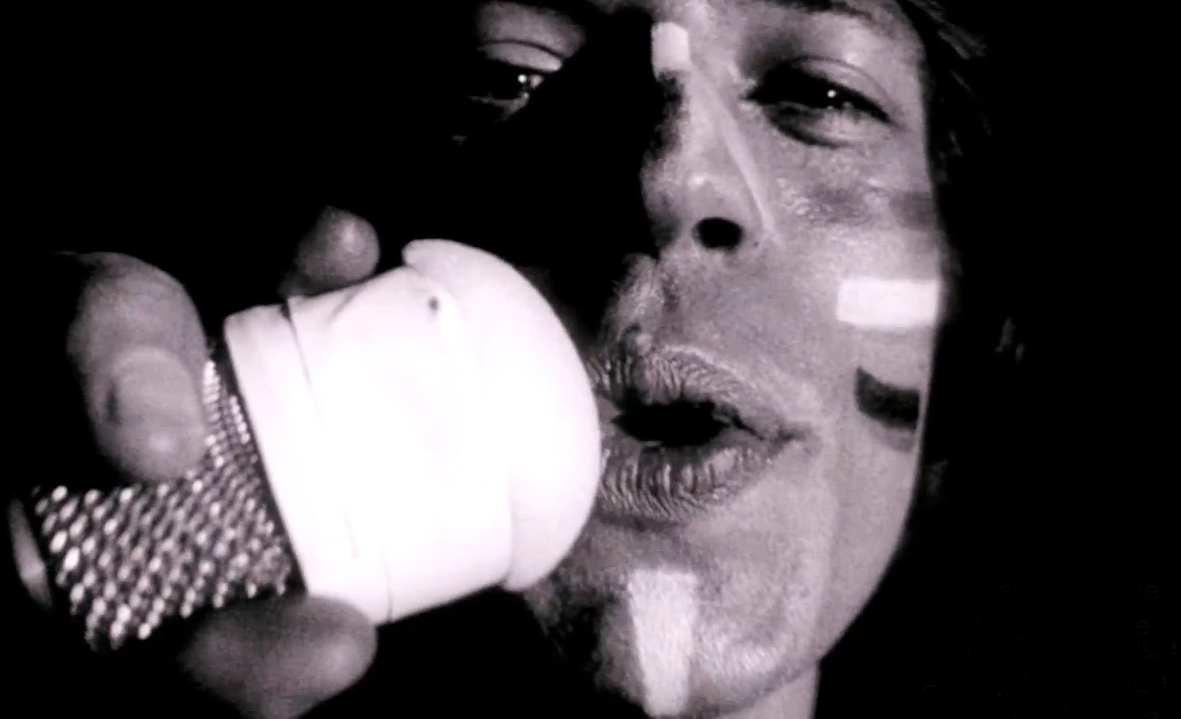Crossfire Hurricane, Brett Morgan’s recent doc chronicling the legacy of the Rolling Stones, very much wishes it were D.A. Pennebaker’s Dont Look Back… which it’s not… But it’s far closer than I would have imagined. It’s the best film on the Rolling Stones in more than four decades and likely the definitive cinematic documentation of the band’s career. Although the film is framed by audio-only interviews conducted among present and past members of the band, on the eve of their 50th anniversary, the majority of Crossfire Hurricane exists, like Dont Look Back, as a direct cinema narrative, depicting the band backstage and in-transit (in cars, planes, and trains) throughout the 1960s and early 1970s. There are also a number of early, semi-professionally-shot performances and radio and television interviews with the band. The film is far more artful than you might expect, lacking the sterile rigidity of the average “rock doc,” and, instead, embodies the chaotic aesthetic of the band as it existed in those years.
Admirably, Crossfire Hurricane does not attempt to document The Rolling Stones’ career in its entirety (which would seemed destined for failure). The band’s last forty-years are merely footnoted in the film’s final minutes, spending the rest of the film focusing on their first decade. It largely ignores their legacy as a “media spectacle,” and focuses on the beauty of their early, revolutionary, youthful angst. In fact, it may even be enough to convince suburban teens that their ‘rents’ favorite band is not so lame and cheesy as they would like to think. Much of the early part of the film is spent with performance footage from the band’s first years, as a blues cover band, when their shows tended to last around ten minutes and culminate with stage invasions, bodies dropping, and urine flowing from the underwear of pubescent girls… seriously. (I mean, they weren’t quite The Stooges, but they were certainly far more crass than tween Dakota probably thinks of the guys who wrote “Beast of Burden.”)
[youtube http://youtu.be/jRodNxDEiYc]
In addition to portraying the original Stones as being “vulgar, obstinate, and hostile,” Crossfire Hurricane also displays the band’s eloquent and subversive intellect. During footage from The Rolling Stones Rock and Roll Circus Mick Jagger discusses how the “Sympathy for the Devil” character was inspired by Baudelaire and how the Apocalyptic sound of Beggars Banquet was a product of the state of the Western world in 1968: “The violence was all pervasive and you can’t help but live in it and reflect it back again and then, of course, it goes into a feedback loop.” Although fifty-years on it’s a bit difficult to see any modernist-inspired anarchy in these sixty-and-seventy-somethings, pushing $500 concert tickets to see them perform alongside the likes of Katy Perry and Lady Gaga, there once was a time when police riots, drug overdoses, and prison sentences were never more than “a stone’s throw” away (Yeah, I know, it’s lame.) Just think, had the band self-destructed after this first decade, documented in Crossfire Hurricane, The Rolling Stones may have remained the world’s most legitimately badass anti-spectacle… and not what your kids complain about on the way to soccer practice…
*Crossfire Hurricane is out this Tuesday, May 21st, courtesy of Eagle Rock Entertainment.









